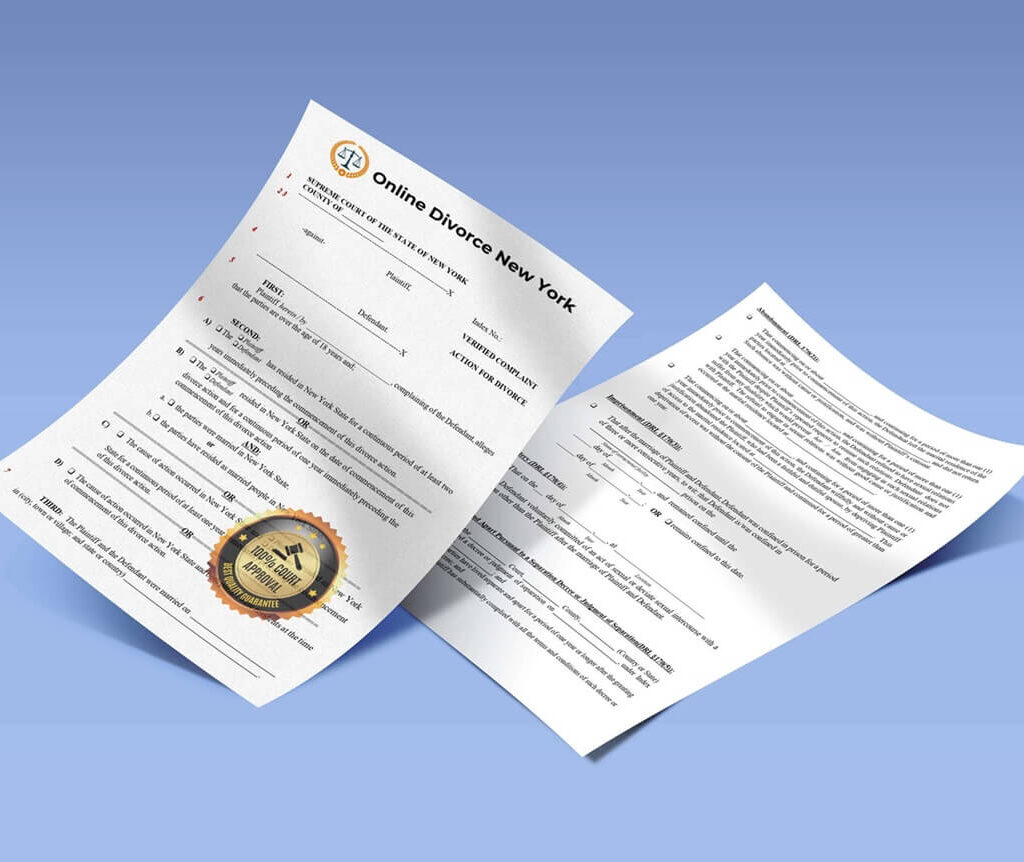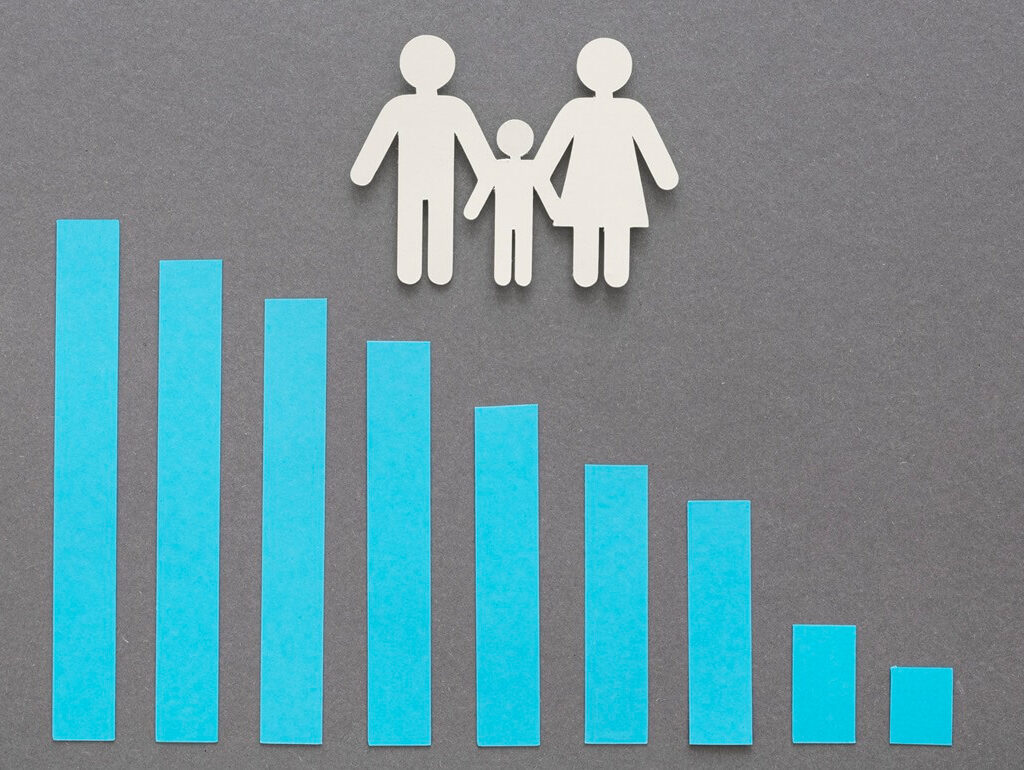New York is not a community property state. Instead, it follows the “equitable distribution” principle in divorce cases. This means that during a divorce, the court aims to fairly distribute marital property between spouses by considering all contributions and circumstances rather than strictly equal splits.
Community Property vs Equitable Division
Divorcing spouses must divide property and debts acquired during the marriage. They can agree to assets division themselves or request the court to make a decision for them. When resolving property disputes in divorce, the judges, depending on the state laws, adhere to one of two division approaches: community property or equitable distribution.
What Is a Community Property State?
In a community property state, the judge divides the divorcing couple’s marital property based on the equal rather than equitable distribution principle. However, some states do not require a 50/50 split.
There are 9 community property states, including Texas, Arizona, California, Idaho, Louisiana, New Mexico, Nevada, Wisconsin, and Washington. When deciding on property division during a divorce, judges first determine assets, liabilities, and debts to distinguish separate and marital property and then divide all joint possessions equally between spouses. In most cases, the court tries to give each party an identical portion of assets, even if not all of them can be split equally.
What Is Equitable Division?
Equitable asset split in divorce is another approach used in 41 states. It provides that all marital property acquired by spouses during the marriage must be divided between them not equally but fairly, and therefore, not necessarily 50/50.
Guided by equitable distribution in New York, judges also check the list of separate and marital property and then make a decision regarding the division of joint assets. The proportions of distribution in a divorce can be different; courts normally take into account a variety of factors when deciding on them.
Difference Between Community Property and Equitable Division
The main difference between the two approaches to asset split in divorce is that in community property states, courts try to divide the spouses’ assets and debts equally. In contrast, in equitable division states, the proportions may not be identical; here, judges pay attention to numerous circumstances to resolve the issue of property distribution between spouses.
New York Property Division Laws
The main NY marital property laws regarding the division of spouses’ assets and liabilities during a divorce are defined in Domestic Relations Law § 236. According to them, New York is an equitable distribution state where judges fairly divide all marital property between spouses.
If your case is uncontested, you can determine how to split your joint assets before filing for divorce in New York yourself. If you have disputes regarding property division, you can ask the court to decide on it instead of you.
Since only marital property is subject to division during a divorce, the list of separate and joint assets must first be determined. Generally, all assets, liabilities, and debts acquired by spouses during marriage are considered marital property in New York. Exceptions can be possessions obtained during the marriage but defined as separate in the agreement entered into by the spouses beforehand.
In most cases, each spouse’s separate property is not divided during a divorce. It includes ownership that either spouse:
- Bought before marriage.
- Received as an inheritance or gift.
- Purchased in exchange for the separate property during the marriage.
- Received as compensation for personal injuries.
- Defined as separate one in a prenuptial or postnuptial agreement.
An increase in the value of separate property is also considered sole ownership of either spouse, provided the other party has not contributed to it.
Can separate property become marital property? Yes, in some cases, separate assets and liabilities may become joint if parties have commingled them or if either spouse has increased their costs with their contributions. For example, an investment account issued to one of the parties but contributed to by both of them can become marital property subject to division upon divorce. The same applies to a house that belonged to either spouse before the marriage but was renovated or maintained by the other party during the marital life.
Factors Considered in Property Division
When deciding on property division in a divorce, the judge can take into account numerous circumstances. Their list varies depending on the specifics of the case and may include but is not limited to the following:
- Presence of prenuptial agreements that may have been signed. If parties enter into a prenuptial contract before getting married, it can be a decisive factor in determining the list of separate and joint property and the terms of its division in a divorce.
- Standard of living established during the marriage. When awarding property to each spouse, the judge pays attention to their living conditions during the marriage and will try to keep them the same for both parties.
- Earning capacity and potential for future income of each spouse. In case one party has a much lower level of income or limited employment opportunities, the court may award proportions of property division that can compensate for the difference between the parties’ earnings.
- Length of the marriage. If the marriage lasted for many years, the court would likely distribute the property in a proportion related to equality.
- Age and health of each spouse. The state of physical and mental health, as well as the age of the parties, can impact the possibility of self-sufficiency, so the court also takes this into account when dividing assets and liabilities between spouses.
To sum up, New York is an equitable distribution state where all spouses’ marital property is divided between them fairly but not necessarily equally during a divorce. The parties can decide on its split independently or with the intervention of a judge. The court takes into account various case-specific circumstances when making a decision on assets division issues.

Start by creating a free account on our website to see if you qualify for an online divorce in New York. Prepare all the paperwork needed for filing an uncontested divorce online without lawyers.

Rafael Hebert is an experienced writer specializing in such topics as infidelity in marriage and divorce. His works can be seen on popular blogs like Marriage.com and Divorce Magazine. Having background in relationship counseling, Rafael is dedicated to helping individuals with emotional issues surrounding infidelity and educating them on their divorce options. In his free time, Rafael enjoys watching documentaries and visiting film festivals in different states.








